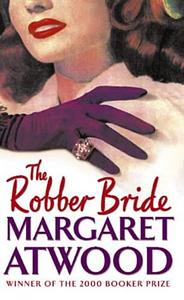You need to sign in or sign up before continuing.
Take a photo of a barcode or cover
I see Zenia's main characteristic as narcissism not a "man-eating" sexuality. She's the ultimate black-hole, sucking in all the good things others have, but is never satisfied. Sex and her looks are just part of her tool kit along with her intelligence and ruthlessness, etc.
A lot of my enjoyment of this book came from recognition: what it feels like when one of the "cool kids" takes an interest in you. What it feels like when they drop you and you see how you've been used. What it feels like when you realize your true friends may not be those you share interests with but those who don't want anything of you except for you to be you.
The absence of mothers, sisters or any woman a girl could trust growing up also resonated. And what that does to you, and how you work through it all again when you're older.....
змушує багато думати про себе.
I also love how she subtly blends in characters, business wanna concepts from her other books.
I love Atwood and this book keeps me as a fan.
Zenia is a ghost. A ghost armed with teeth and tits and a makeup bag full of tricks that will make you lock your men up in high towers lest they be lured away, to sea, to prison, to a living death. For twenty years she has haunted Tony, Charis, and Roz, three college dorm mates whose Zenia-based traumas bring them closer together. The first time they bury her, as The Robber Bride opens, they rejoice uneasily. Ghosts never go down without a fight, and Zenia proves no exception. So, when they see her again, they finally get a chance at revenge… or if not revenge, then peace, at last.
I always find myself picking up prominent female authors with their least-known or least-liked works, but I liked this one. The Robber Bride feels like a melodrama, based on the character Zenia alone, but reality bursts back in with the other women, who stand in such bright contrast to one another that they become realistic individuals. Of course, when we learn their backstories, we are submerged back into the world of heightened emotion and extreme human behaviors (though, and as the narrator likes to remind us throughout, these are war babies and the reality these women grew up with, all the way through the book’s present in 1991, are the consequences of war), but then Atwood manages to sketch real women through depictions of their pain.
I mean, I hate to say it, because people are so diverse and surprising, but drawing on this book as a writing lesson, it seems like what builds character is pain — where it comes from, how it was dealt with, and how trauma is remembered.
Thematically, the characters mirror each other, which is tough to do with three characters, I think. Mirrors usually only have two sides, the world in which it is viewed and that world’s reflection. Still, there’s something about Tony, Charis, and Roz that intersects and makes their relationship feel destined. Tony, for example, grows up as a left-handed person in a right-handed world, forced to use her right hand, The Right hand. As a result, she becomes convinced that she herself is “left,” a person spelled backwards, wrong and somehow incomplete. Charis, Tony’s reflection, sees herself as similarly broken, split in half around her trauma, during which the girl Karen becomes her light twin, the woman Charis. Meanwhile, Charis’s spiritual twinness is represented by Roz’s real twin daughters, who speak and often act as one, an entity which they call “Erla.” (I know I gave Roz a shallow reading, but as she is the more ground, materialistic of the three, Roz doesn't seem to have "twinness" anywhere else in her life.)
The Robber Bride is the kind of book you have to read over a few days with a notebook beside you, to fully enjoy the depth that has gone into creating these women. For that reason, it’ll probably get better with rereads.
Actual rating is closer to 4 stars, but because I can't really remember details or standout moments a mere 24 hours later, I'm marking it with 3. (As always, I'm rating my experience reading the book, not the actual book. I truly believe it deserves more attention than I'm willing to give it right now, but I will come back.)
"Male fantasies, male fantasies, is everything run by male fantasies? Up on a pedestal or down on your knees, it's all a male fantasy: that you're strong enough to take what they dish out, or else too weak to do anything about it. Even pretending you aren't catering to male fantasies is a male fantasy: pretending you're unseen, pretending you have a life of your own, that you can wash your feet and comb your hair unconscious of the ever-present watcher peering through the keyhole, peering through the keyhole in your own head, if nowhere else. You are a woman with a man inside watching a woman. You are your own voyeur."
The lives of the three women in this are connected by their shared past involving Zenia, who wrecks everyone's life. They find closure in their friendship along the way and are forced to rely on their bond when Zenia comes back from the dead. Yet under all the issues with Zenia flows the ever present issue of life as a woman in a man's world and the struggle of women who have to twist themselves to fit society that is transitionng between tradition gender roles and modern expectations.
Fijn boek, maar de andere van Margaret Atwood die ik al gelezen heb, vond ik toch beter.

